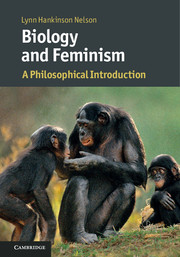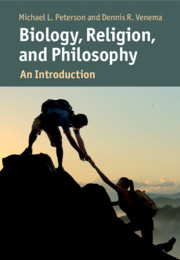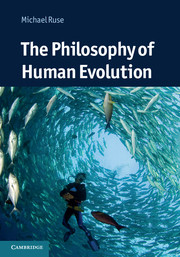Biology and Feminism
This book provides a unique introduction to the study of relationships between gender and biology, a core part of the feminist science research tradition which emerged nearly half a century ago. Lynn Hankinson Nelson presents an accessible and balanced discussion of research questions, background assumptions, methods, and hypotheses about biology and gender with which feminist scientists and science scholars critically and constructively engage. Writing from the perspective of contemporary philosophy of science, she examines the evidence for and ethical implications of biological hypotheses about gender, and discusses relevant philosophical issues including understandings of scientific objectivity, the nature of scientific reasoning, and relationships between biological research and the scientific and social contexts in which it is pursued. Clear and comprehensive, this volume addresses the engagements of feminist scientists and science scholars with a range of disciplines, including developmental and evolutionary biology, medicine, neurobiology, and primatology.
- Provides a comprehensive and balanced survey of feminist scientists' and science scholars' engagements with various fields of biology
- It is accessible yet substantive, with scientific and philosophical issues clearly and concisely presented
- The topics discussed include methodologies and hypotheses about gender in evolutionary theory and other areas of biology, meaning that the book will interest readers from a range of disciplines
Reviews & endorsements
'The book is written and structured in a way that makes it accessible to both students and researchers looking to familiarize themselves with the philosophy and history of feminist engagement with biology. It is also a great read for any feminist scientists, philosophers of science, or science studies scholars who, although maybe familiar with this area of study, are nonetheless looking for an engaging refresher.' Sara Weaver, History and Philosophy of the Life Sciences
'… offers an important outline of key philosophical issues threading through biology's concerns with gender, as well as feminist critiques.' Lynda Birke, A Journal of Feminist Philosophy
'This text is suitable for classroom use because it gives a clear demonstration of the methods of philosophy of science, providing organized coverage of fundamental topics while vividly showing that legitimate critiques of logical reasoning in science are informed by social and political understanding.' Evelyn Brister, Metascience
Product details
August 2017Adobe eBook Reader
9781108365116
0 pages
9 b/w illus.
This ISBN is for an eBook version which is distributed on our behalf by a third party.
Table of Contents
- List of figures
- Acknowledgements
- Preface
- 1. Conceptual preliminaries
- 2. Sexual selection: Darwin
- 3. Sexual selection: parental investment theory and human sociobiology
- 4. Primatology
- 5. Developmental biology
- 6. Medicine
- 7. Neurobiology
- 8. Evolutionary psychology
- 9. Socially responsible science and socially relevant philosophy of science
- Bibliography
- Index.




